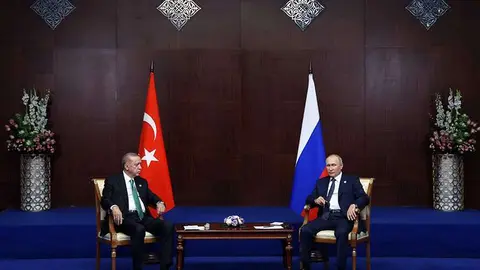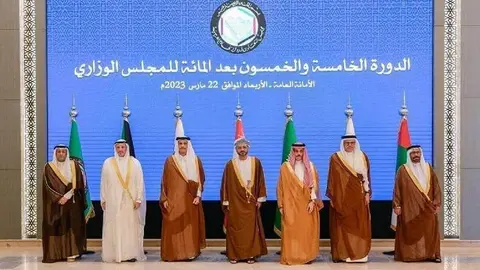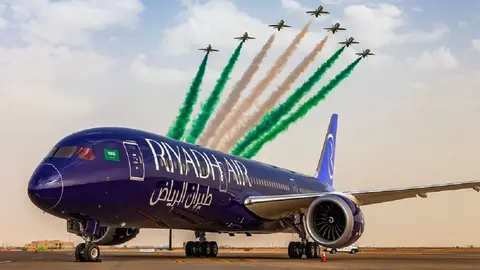First Gulf Summit with Central Asian countries held in Saudi Arabia

The first-ever summit of the Gulf Cooperation Council (GCC) states and the five Central Asian countries took place this week in Jeddah. The meeting is the first in eight months following the 43rd Gulf Summit in Riyadh in December 2022.
GCC Secretary General for Arab States Jassem Mohamed Albudaiwi considered the holding of the summit as the cornerstone of the foundation of their relations, a real indicator of rapprochement and partnership, and a gateway to great opportunities, cooperation and exchange of experiences.
In his speech at the summit in Jeddah on Wednesday, Albudaiwi clarified that the General Secretariat has recently initiated a strategic dialogue with the Central Asian countries, and the Ministerial Council has approved a plan for strategic dialogue and partnership between the two sides and ordered the conclusion of memoranda of understanding and the development of joint action plans.

The summit was attended by officials from the six GCC states, as well as the Central Asian countries of Uzbekistan, Turkmenistan, Tajikistan, Kyrgyzstan and Kazakhstan. During the meeting, ways to strengthen cooperation and coordination between the two sides in various fields were discussed.
They addressed issues of joint cooperation, especially in the fields of trade and investment, energy, education, scientific research, industry, agriculture, tourism and culture, as well as discussing a number of regional and international issues of common interest.
On this occasion, the Saudi Minister of Investment, Khalid bin Abdulaziz Al-Falih, confirmed that this summit confirms the leading position that Saudi Arabia enjoys at regional, continental and global levels. He expressed his optimism about the expected outcomes of this summit, especially with regard to the development and expansion of economic and investment relations between the countries participating in the summit, whether at the bilateral or regional level.

He explained that there are historical, cultural, social and economic relations and ties linking the Arab Gulf countries and Central Asian countries, as both regions represent an important part of the world's trade routes.
As reported by the Middle East Economy, the minister also commented that the Gulf Arab countries have strategic development plans, most notably the Kingdom's Vision 2030, but also including Oman's Vision 2040, Bahrain's Economic Vision 2030, and others, and on the other hand, Central Asian countries have adopted similar development visions, including the National Development Strategy for the period 2018 to 2040 in Kyrgyzstan, Kazakhstan's Strategy 2050, and others.
The Saudi government considers these strategies to be close and even similar, especially in the economic and investment sphere, so the Ministry of Investment, in cooperation with numerous public and private sector partners in the Kingdom, is working to seek investment opportunities with the Central Asian Republic to provide an attractive, stimulating and secure investment environment.

Meanwhile, Uzbek Deputy Foreign Minister Bakhromjon Aloev described the first Gulf-Central Asia summit as historic, saying it was a new form of inter-regional cooperation between two very important regions of the world in terms of geopolitics and geographic economics.
The Deputy Minister also stressed that "cooperation between the Central Asian countries and the GCC states is of strategic importance in view of the difficult international situation. Strengthening the existing relations between the two sides is in the long-term interests of both regions," he told Zawya.

The summit was held in light of the growing regional and international interest and competition for the five Central Asian countries, in view of their geostrategic location and importance and the natural resources these countries possess, which enable them to develop extensively.
Dr Abdulaziz bin Saqr, Director of the Gulf Research Centre, confirmed that "Saudi Arabia and other GCC states have taken positive steps towards developing cooperation with the Islamic countries of Central Asia," noting that "cooperation with these countries is a political, economic, security and cultural necessity.
The Gulf countries, especially Saudi Arabia, were among the first countries to take an interest in developing relations with Central Asian countries, based on the historical relations between the two sides and the fact that the region is a natural extension of the Gulf region, and for centuries the Gulf and the Arabs were part of a great Islamic empire.











